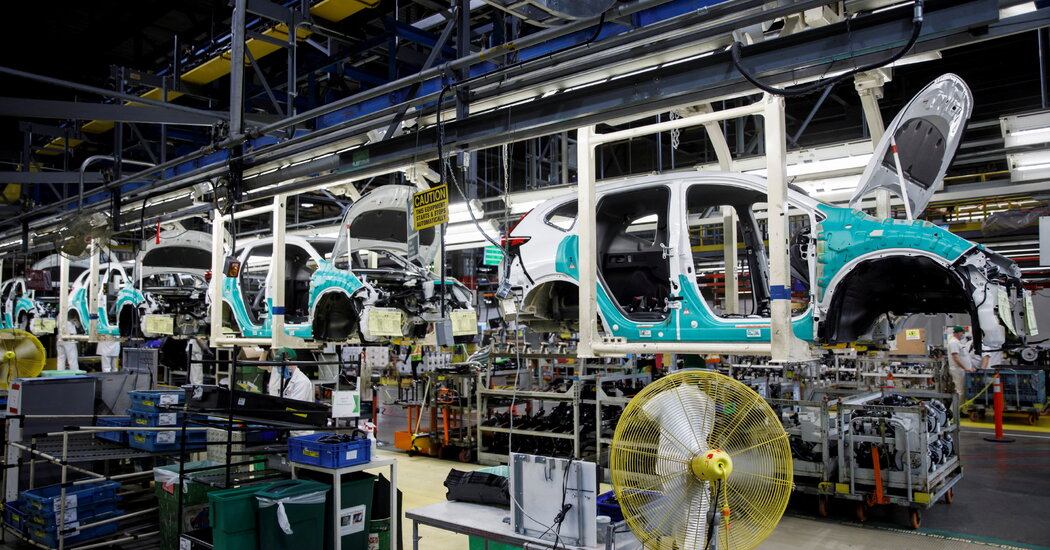Honda announced on Monday that it would relocate the production of one of its popular vehicles from Ontario to a U.S. factory due to U.S. tariffs. Additionally, the company decided to delay an $11 billion plan to manufacture electric vehicles and batteries in Canada. This move comes less than a month after Honda refuted reports in Japanese media suggesting that President Trump’s tariffs would lead to a reduction in its Canadian operations. The United States has imposed a 25 percent tariff on many Canadian autos and auto parts. Honda’s CEO, Toshiro Mibe, stated that the decision to move the manufacturing of the CR-V sport utility vehicle to the U.S. was part of the company’s strategy to optimize production and mitigate tariff impacts. The sluggish growth of the electric vehicle market was cited as the reason for postponing the $11 billion expansion of the Ontario factory complex, which was supported by significant financial incentives from the Canadian and Ontario governments. This expansion was previously described as the largest investment by an automaker in Canadian history and was expected to employ 1,000 people. Honda Canada’s spokesman, Ken Chiu, mentioned that the company does not intend to reduce production volume or employment at its Canadian factory, which currently employs about 4,200 people. Prime Minister Mark Carney’s office has yet to comment on Honda’s decisions.
— new from The New York Times
